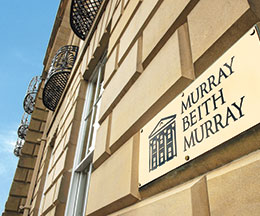 If you are lucky enough to be spending your summer in your own property in the sun, your thoughts might turn to who you want to enjoy your property when you are no longer here and how you can plan for this.
If you are lucky enough to be spending your summer in your own property in the sun, your thoughts might turn to who you want to enjoy your property when you are no longer here and how you can plan for this.
What are the complexities brought about by owning property abroad?
Where property is owned abroad, dealing with estates after death can be more complicated. Adding in the foreign element brings additional legal and taxation systems and important considerations must be made as to where the owner of the property is domiciled.
Property which is owned abroad may automatically be subject to the succession law of the country in which the property was situated. These rules can vary greatly from country to country and they can impact who can inherit the property and how much tax is payable.
Recent European legislation (European Succession Regulation) has made it possible to elect for UK law to apply to assets in other European jurisdictions. However, property will remain subject to the tax law of the country in which it is located, although double taxation treaties may mitigate this.
What are the tax implications?
Unlike most civil law jurisdictions, the UK charges inheritance tax on the estate, rather than the beneficiaries. When planning who will inherit your foreign property on your death, it is important to consider the tax system of the country where the property is located. Under the local tax system, there could be significant tax benefits to leaving the property to certain beneficiaries – e.g. your spouse, rather than your children.
Trusts
Many jurisdictions do not recognise trusts outside of the UK. It is important to ensure that any foreign property intended to form part of trust assets is capable of being dealt with by the trust, as this can have a significant impact if trusts have been used to plan for future succession. Where a foreign jurisdiction does not recognise trusts, it may not be effective to include the property as a trust asset for tax planning purposes.
For example, France introduced measures in 2011, whereby UK trusts can now be taxed in France. This means is that if there is a trust in a UK Will covering property in France, then it will be subject to 'droit de succession', the French equivalent of inheritance tax. In France, there is no inheritance tax between spouses and there are generous allowances for other close relatives, such as children. Trusts, however, are treated as non-relatives and may be taxed at the highest rate. For a discretionary trust where non-relatives may benefit, this can be as high as 60%.
This is a complicated area of law and it is vital to take advice from a cross-border specialist.
Contact Our Specialist Estate Planning Lawyers, Edinburgh
At Murray Beith Murray, we’re more than just lawyers,we’re trusted advisors. We clearly outline the implications from initial contact, helping to dispel the mystery behind the law and legal process. Our highly personal service reflects our culture, which is centered on integrity and trust, and the expert guidance we provide has been designed to be an investment, not an expense. For more information, please contact us today on 0131 225 1200, or use our contact form.